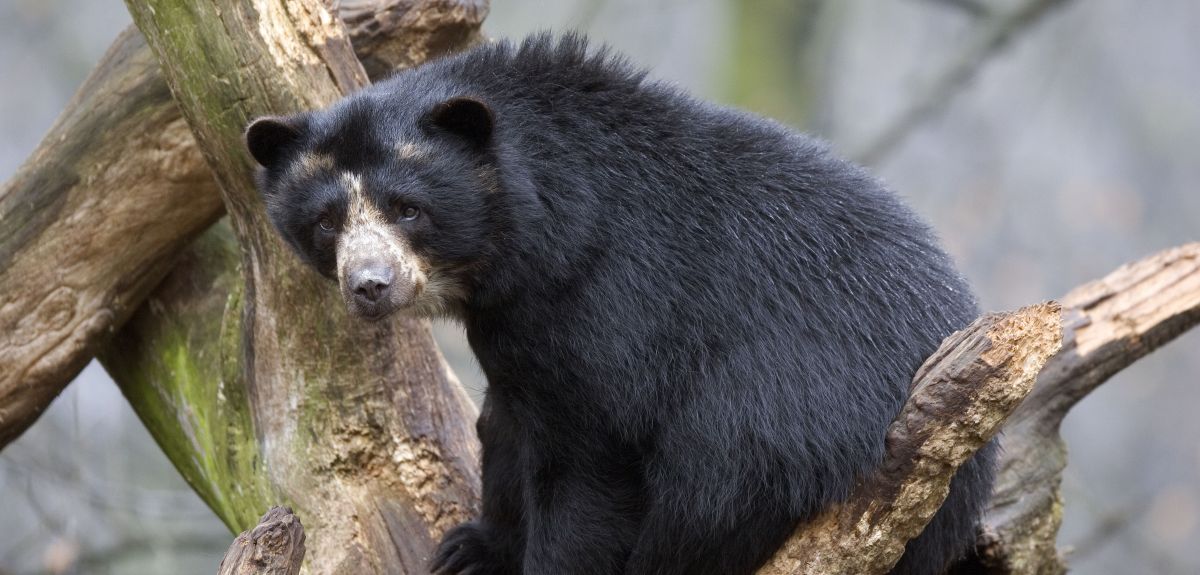
Oxford University collaboration wins ‘green Oscar’ for conservation
The Andean bear conservation project, which was developed and run by Chester Zoo in partnership with the University of Oxford’s Wildlife Conservation Research Unit (WildCRU), has been awarded a prestigious Whitley Award.
The project, which operates in collaboration with the Bolivian NGO Prometa, was set up to support the protection of one of the world's most critically endangered species, the Andean bears of Bolivia. The programme takes an innovative approach to conservation, working with poachers instead of against them, and employing them as wardens to guard the wildlife.
The knock-on effects of climate change have caused severe water shortages worldwide, affecting agricultural production in Bolivia. As a result of the changing circumstances, communities are shifting from an economic focus on farming to livestock. This has led to an inevitable increase in encounters between local people and bears.
By working to understand the practical motivations behind bear hunting, the team are able to offer local farmers sustainable lifestyle alternatives, such as the wildlife wardens’ scheme. These interventions support the community to live side by side with the animals without fear.
Ximena is a power-house of commitment and as tough as they come. She embodies the ambitions of WildCRU's partnership with Chester Zoo, and is a standard-bearer for the blend of science and practicality that is the hallmark of modern conservation, with concern for the well-being of these endangered bears and that of the people that live alongside them.
Professor David Macdonald, Director of WildCRU
Run by the Whitely Fund for Nature, the international prize is often referred to as the ‘green Oscars’. Widely regarded as the highlight of the conservation calendar, it honours those who have made an exceptional contribution to the field, by supporting grassroots ecology projects in the developing world. 166 entries from 66 countries were considered, before the final six winners were chosen. Winners received a year’s worth of project funding, worth £35,000.
Award-winner Dr Ximena Velez-Liendo, Chester Postdoctoral Conservation Fellow at Oxford’s WildCRU and Research Associate in the Department of Zoology, said: ‘I never imagined I would receive such an honour. The Whitley Awards are very prestigious and only the best of the best of conservation scientists receive them. It’s a dream come true! Thanks to the Whitley Award, the funding will help us to get the research equipment we need to improve our understanding of the bears’ distribution and we will be able to work with more communities and expand our project.’
The Andean bear conservation work was a result of the recent research partnership between Oxford's WildCRU and Chester Zoo. The two joined forces to investigate the world's major conservation challenges, combining some of Chester Zoo's international projects with Oxford’s cutting-edge scientific research.
Professor David Macdonald, Director of WildCRU, said: ‘Don’t be fooled by her miniature stature or by the graciousness with which she addresses Princess Anne, Ximena is a power-house of commitment and as tough as they come – seeking out her Andean bears in some of the most hostile habitats in the world. As the first post-doctoral Chester Conservation Fellow at WildCRU, Oxford is immensely proud of her triumph at the Whitley Awards, of her skill and her dedication: she embodies the ambitions of WildCRU's partnership with Chester Zoo, and she is a standard-bearer for the blend of science and practicality that is the hallmark of modern conservation, with concern for the well-being of these endangered bears and that of the people that live alongside them.’
HRH The Princess Royal awarded the prizes at the Whitley Awards Ceremony at the Royal Gepgraphical Society in London on Thursday 18 May 2017.
 New study estimates NHS England spends 3% of its primary and secondary care budget on the health impacts of temperature
New study estimates NHS England spends 3% of its primary and secondary care budget on the health impacts of temperature
 International collaboration launches largest-ever therapeutics trial for patients hospitalised with dengue
International collaboration launches largest-ever therapeutics trial for patients hospitalised with dengue
 Oxford-built multi-agent assistant for cancer care to be piloted in collaboration with Microsoft
Oxford-built multi-agent assistant for cancer care to be piloted in collaboration with Microsoft
 World's first Phase II Nipah virus vaccine trial launch
World's first Phase II Nipah virus vaccine trial launch